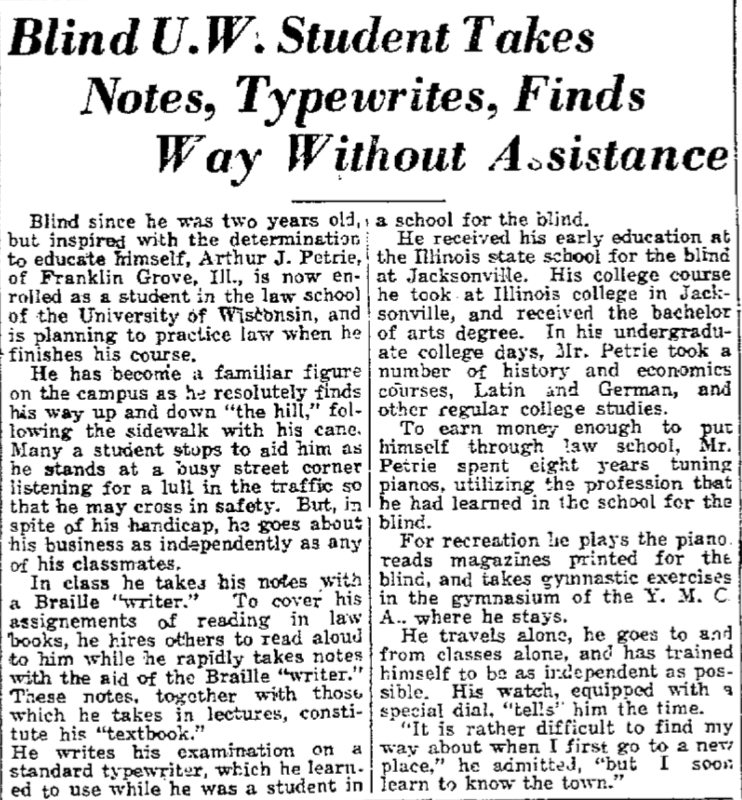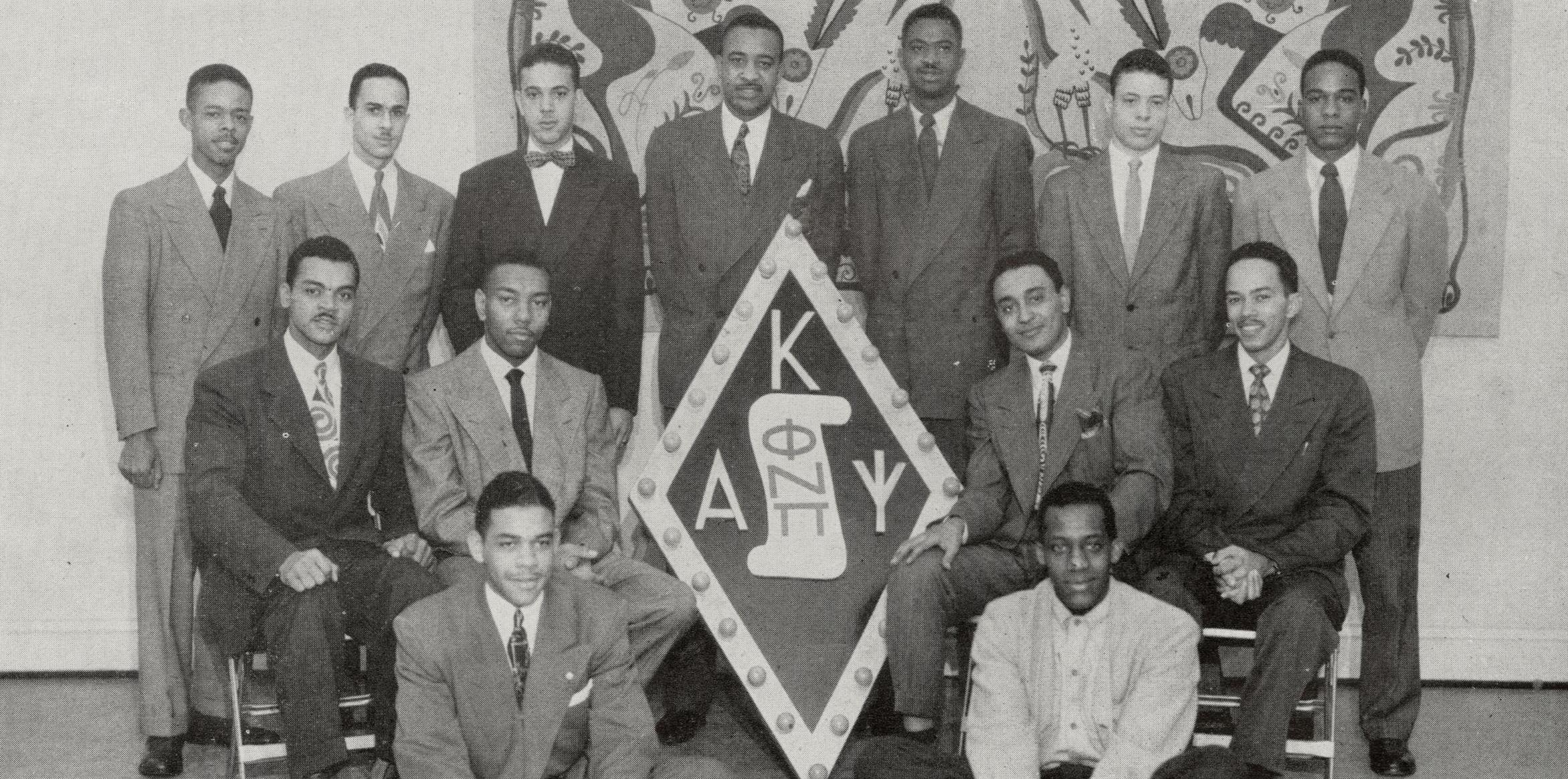Hello and welcome to the inaugural newsletter of the Public History Project! The University of Wisconsin-Madison’s Public History Project is a multi-year effort to uncover and give voice to those who experienced, challenged, and overcame prejudice on campus. As we are now moving into the third year of the Project and starting to develop our final exhibit (opening Fall of 2022) and other products, we wanted to make sure that as our workload increases, everyone can follow along.
We’re hoping this newsletter will be an easy way to keep the UW-Madison community up to date with the workings of the Project. We plan to highlight the research our hardworking undergraduate and graduate students have conducted (and uncover some of the more interesting finds from UW-Madison’s Archives), inform everyone of upcoming events related to the Project, and recap past events and research that you may have missed. We are excited to share the exceptional work our team is doing and look forward to engaging with our community regularly.
This month's newsletter includes highlights on our two newest blog posts, links to past events, an interesting archival find, and more!
|
|
|
|
|
|
The Project’s Blog is one of the best ways to see the research our undergraduate and graduate students are working on to help uncover the histories of exclusion and resistance on campus. We publish new research every 2-3 weeks while school is in session and will highlight newly published blogs in this newsletter. Check out the 15 blog posts we've published since the Project began here.
This month, in honor of Native November, our graduate student researcher Zada Ballew published her blog post “On Listening.” Zada spent the summer of 2021 conducting oral history interviews with Native alumni. In this blog post, she reflects on the power of listening and the opportunities for UW–Madison to begin writing and telling a Native history of UW–Madison. You can see her post here.
|
|
|
|

|
An article on Arthur J. Petrie from the May 31, 1924 edition of the Madison Capital Times.
|
We get asked a lot of questions. Every month we'll share an answer to a question we received. Got a question? Send us an email at publichistoryproject@wisc.edu
Question: Who was the first student with a disability at UW-Madison?
Answer: Arthur J. Petrie
We believe that Arthur J. Petrie, a blind law student in 1924, might be the first disabled student on campus. He listened for lulls in traffic when waiting to cross busy streets and hired others to read aloud to him while rapidly taking notes with the aid of a Braille writer. “He travels alone, he goes to and from classes alone, and has trained himself to be independent as possible,” according to the Madison Capital Times—a sentence that was likely meant to be reassuring or inspirational but captures how isolating having a disability can be. The article’s title—“Blind U.W. Student Takes Notes, Typewrites, Finds Way Without Assistance”—reflects the university’s lack of formal accommodations for many disabilities at the time. (Shout out to our wonderful graduate student Emma Wathen for this incredible research!)
|
|
|
|
Last month, our undergraduate researcher Kayla Rose Parker, published her blog on the history of Black-Greek Letter Organizations at UW–Madison. This blog post details the history of their formation and opens a discussion of their enduring legacy at UW–Madison. You can see her post here.
|

|
Kappa Alpha Psi, the first BGLO at UW-Madison, pictured in the 1948 Badger Yearbook.
|
|
|
|
Every month we'll highlight an interesting archival object from the UW-Madison Archives. For our first newsletter, we wanted to make sure that everyone has the opportunity to see the incredible never-before-seen footage exposing housing discrimination in 1962 Madison. The brainchild of then-Wisconsin NAACP president Lloyd Barbee and UW Extension filmmaker Stuart Hanisch, this collection of hidden camera footage was at first supported, then later legally restricted by the University of Wisconsin. The Project helped archival staff digitize Barbee and Hanisch’s film and partnered with PBS Wisconsin to show, for the first time, the untouched footage hidden for so long. Watch the film and then see our panel of experts discuss the footage here.
|
|
|
|
You’ve already been directed towards one past event, but we have even more to share! The Public History Project is continually partnering with student organizations, departments, and units on campus to ensure that the histories we uncover are made available to our community. For a complete list of past and upcoming events, click here!
This month, we’d like to highlight an event from spring of 2020. Building on the research conducted for the Project, graduate student Emma Wathen discussed the history of disability to celebrate the 30th Anniversary of the passage of the Americans with Disabilities Act (ADA). You can watch her presentation here.
|
|
|
|
Each month the Project's Director, Kacie Lucchini Butcher will share a book, podcast, movie, quote, or something else she think has been adding to the PHP. We're calling it "From The Desk of KLB"
This month From The Desk of KLB - The Un(re)solved podcast by PBS & Frontline. The podcast examines a federal effort to grapple with America’s legacy of racist killings. It asks listeners to reflect on how we right historical wrongs in the present.
A Cap Times Idea Fest session this year was themed off of the series. It was titled "Un(Re)Solved Wisconsin: A Dialogue on Racial Violence" and is available to view here.
|
|
|
|
As always, if you have a story to share, an event you think should be researched, or a person you think has been overlooked, please email us at publichistoryproject@wisc.edu.
|
|
|
|
|